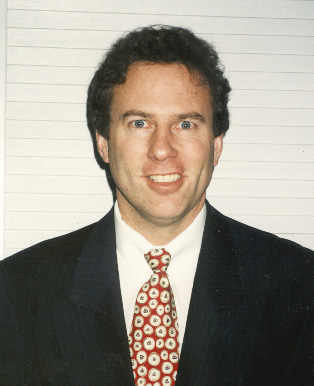So, Why Not a Broadcaster?
The smarter way to stay on top of the multichannel video marketplace. Sign up below.
You are now subscribed
Your newsletter sign-up was successful
As the Feb. 11 effort by Comcast Corp. to buy The Walt Disney Co. — parent of ABC — indicates, new rules from Washington, D.C., suggest new alliances that never would have been thought of a couple of years ago.
Suddenly, a cable company can push to buy a huge broadcaster, a telephone company considers buying a satellite-TV operator and God knows what other combination, consolidation and/or joint venture gets devised and ultimately permitted. It’s a great time to be a banker or a lawyer with a “mergers and acquisitions” specialty sitting beside your name.
But all aren’t partaking of the experience: that group is the over-the-air broadcasters.
WANTING TO BE INNOVATORS
At a private broadcasters’ conference held by Reed Business Information in early February, The Carmel Group delivered a consultant’s keynote address, sorting the four major players into four categories, based upon an independent analysis of their respective legacies: DBS/satellite guys were dubbed the “innovators,” the cable providers were labeled the “followers,” telephone operators were the “wanna-bes,” and broadcasters nicknamed the “wanderers.” Frankly, each wants to be an innovator. No one wants one of the other three nicknames.
For broadcasters in particular, there appears a unique and real need to shirk the label of “wanderer” and rally instead toward the goal of being labeled a “purveyor,” or, better still, even a “gatekeeper.” Broadcasters need to begin shaping their digital futures much more aggressively — otherwise, each risks the ever-more-possible chance that others will be doing it for them.
CLASH OF THE TITANS
Today, conservative valuations for telephony place that industry around $43 billion (and 280 million users), while broadcasters are at $40 billion (with 250 million viewers), cable is at $23 billion (with 65 million subscribers) and DBS is at around $16 billion (with almost 22 million subs). This indicates that each industry is a big player in today’s telecom market, and thus — in most cases — each is as potentially able as the next to develop the next great product, service, business model and revenue stream.
Examples of sector heads who have thought beyond their traditional businesses are today’s DBS operators: Rupert Murdoch, Charlie Ergen and Charles Dolan. Ergen is known for stepping into the consumer-electronics world, melding the purchase of a new EchoStar-labeled monitor and digital video recorder to subscribers’ subsequent purchase of programming content from Dish Network.
The smarter way to stay on top of the multichannel video marketplace. Sign up below.
WHY NOT A DBS OP?
The recent announcement of a new EchoStar portable DVR, for use in cars and hotel rooms, shows Ergen repeatedly asking the question, “Why not a DBS operator?”
Both Ergen’s and Dolan’s venture into the new Multichannel Video Distribution and Data Service (MVDDS) arena, via large and dominant spectrum purchases, shows both men grappling again with the same question. With the DirecTV acquisition, Murdoch now can begin drawing on as many as six separate and powerful revenue streams, i.e., hardware, content, video/audio, Internet/broadband, telephony and 2-way ITV services. It also shows Murdoch thinking, “Why not a broadcaster?” and now, “Why not a DBS operator?”
The Carmel Group has considered and recommended many future examples, however, the real point is not the details of what might be, as much as the thinking that gets a broadcaster to that point.
If a new definition of what broadcasters do is not forthcoming, the broadcast industry will grow less aggressively than the competition.
Ultimately, the U.S. telecom landscape is expanding for all four players. Each needs to look at the new potential for core digital services that include video and audio; voice; data; and two-way ITV. Moreover, each needs to see its vision of the future including advanced services like DVRs with huge storage capacity, video-on-demand and HDTV. Each also has to be looking toward a future in which there are not only multiple streams into the home, business, car or elsewhere, but also multiple revenue streams to support those varied infrastructures.
Comcast CEO Brian Roberts’s foray into the broadcast realm shows he’s developed his own cable version of the standard mantra — i.e., “Why not a cable operator?” Also, because of cable’s forthcoming 4-way bundle (i.e., voice, audio/video, high-speed data and two-way ITV), cable will find itself on the verge of taking over the innovator title from DBS.
Yet because of its financial wherewithal, lobbying and political prowess, telecom legacy and the opportunities ahead, how can a broadcaster see its future in any other terms than the title of this piece: “Why not a broadcaster?
Jimmy Schaeffler is chairman and CSO of The Carmel Group, a nearly three-decades-old west coast-based telecom and entertainment consultancy founded in 1995.

